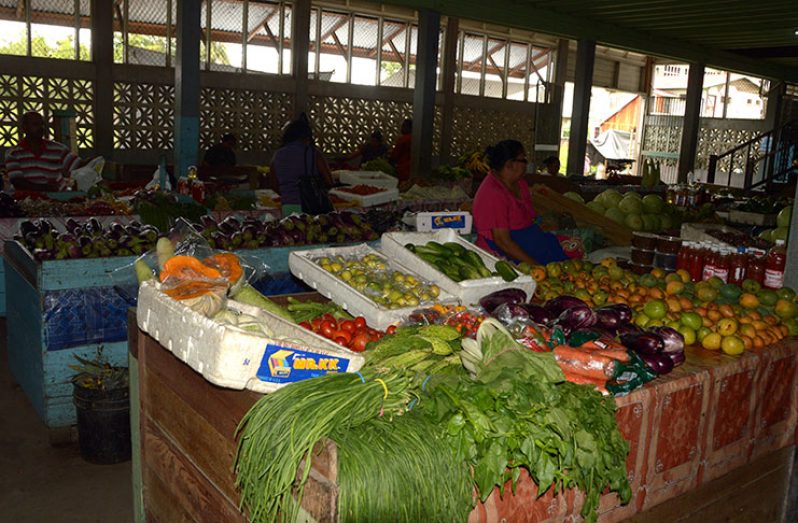By Shirley Thomas
THE New Amsterdam Municipal Market, on the basis of being perhaps the most well-stocked, attractively displayed and well-organised local market place, stands tall in terms of respectability.
However, the same complaint seems to reverberate throughout the market: it’s a story that tells of sales being slow and there being more sellers than buyers, on an average.
“This is the dilemma faced by those of us who daily come out to ply our trade in New Amsterdam. The best days for us are those leading up to holidays when people would spend more than usual and of course at weekends, but shopping during the week is generally slow,” the vendors told the Pepperpot Magazine.

Vendors at this market take pride in the way they display their goods– particularly clothing– for sale. There’s a wide variety of trendy clothing of various colours and designs, all sizes for both men and women, boys and girls in all age groups, but going very slowly.
But with clothing being non-perishable, except for not being able to quickly “turn over” the money spent in purchases, they do not necessarily suffer losses whenever they do not get sales by the end of the day.
On the contrary, those vendors trading in perishables such as fruits, greens and leafy vegetables, fish and meats, lament the losses they suffer when they do not get sales during the day.
The sellers lament that whenever they do not get their stock off before the end of the day, they are forced to reduce prices, since over time, as the fruits, greens and vegetables proceed to deteriorate, so does the value decrease. In addition, they say, they have to store their goods locked overnight under hot conditions in the market place, since it would not be cost effective to pay to transport them home and back over time.
“Many days we have to dump our stocks and that is heart-wrenching because we dump today and tomorrow we have to incur expense to buy more again and the cycle goes on,” one vendor dolefully related.
In the main, the vendors lamented the fact that since the closure of the sugar estates, spending has dropped considerably, since it was purchases from persons who worked there that boosted sales considerably.
However, there were a few others who, despite trying times, found it prudent to give thanks for the little they were able to muster. Their response was poignantly that: “After all, is not every day that a fisherman does catch fish, so the little that we get, whenever we get it, we are thankful and give God thanks and trust Him for the days ahead.”



.jpg)








